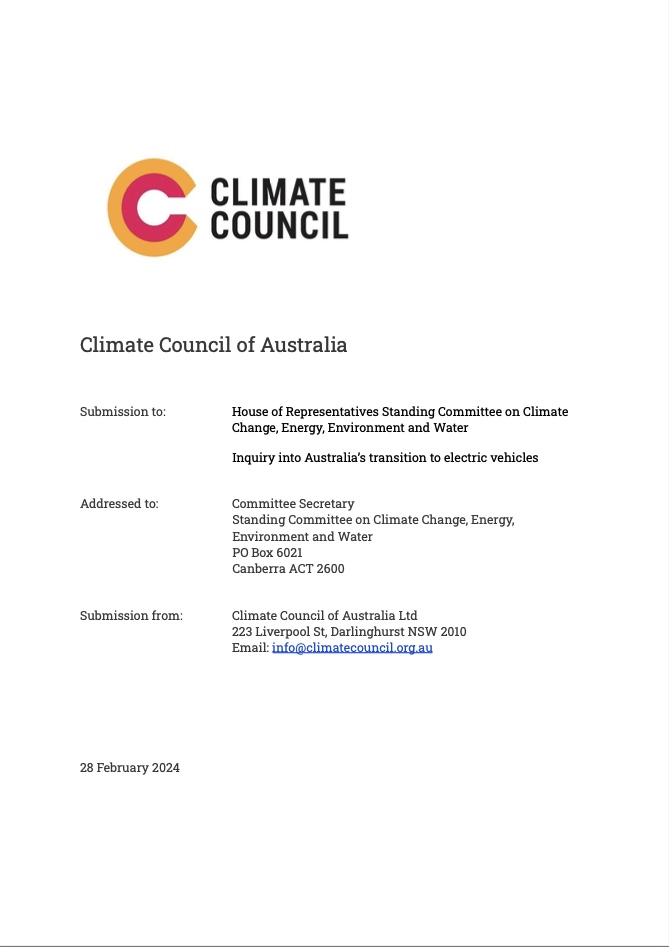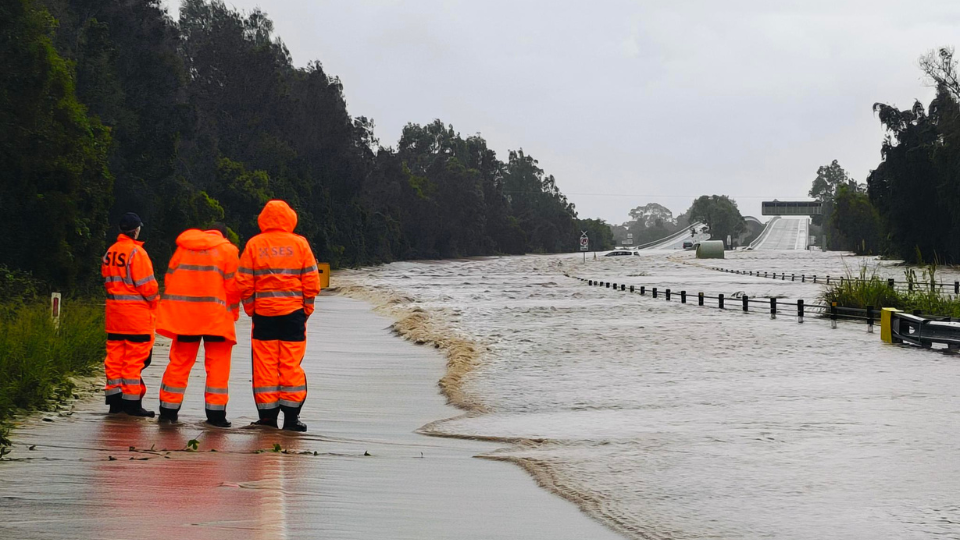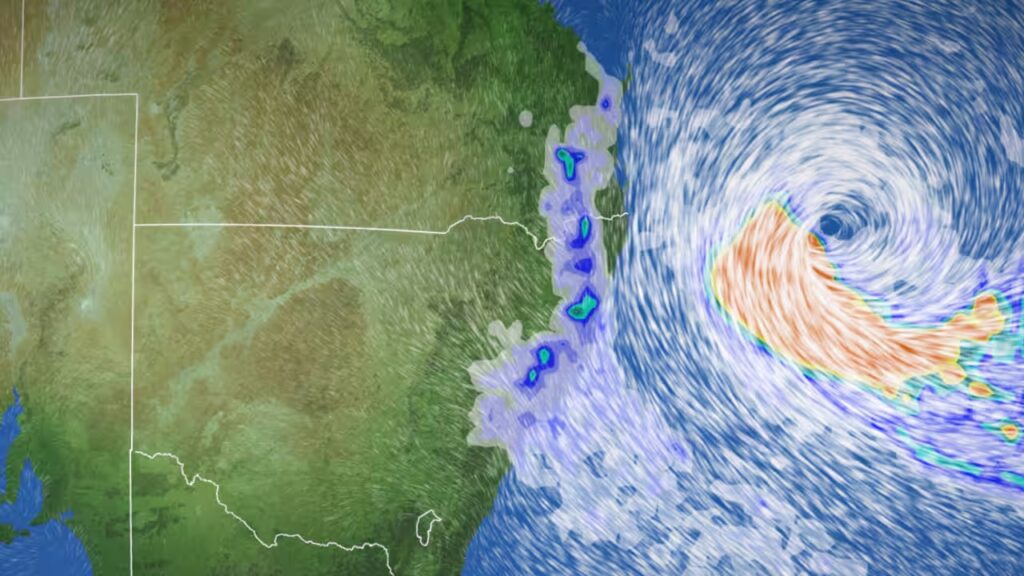The Climate Council of Australia welcomes the House of Representatives Standing Committee on Climate Change, Energy, Environment and water’s inquiry into the transition to electric vehicles, and appreciates the opportunity to provide input to this. Supporting a transition towards low and zero emission vehicles is important so that Australians can start sharing in the benefits of cleaner cars that are cheaper to run. These vehicles are already being enjoyed by millions of drivers around the world. Pursuing policies to incentivise manufacturers delivering the same kind of vehicles to Australia is both an important climate and cost-of-living measure.
Implementing clear policies to address climate pollution is an urgent priority now. The year 2023 was the world’s hottest ever, with July being the first time in which the global average temperature rise spiked 1.5 degrees celsius (°C) above pre industrial levels (WMO, 2024). With an El Niño event underway and unstable weather systems sweeping across the nation, the threat of extreme weather is a stark reality for Australians. The New South Wales Rural Fire Service announced an early start to the fire danger season in August 2023 (ABC, 2023a) and by November 2023, more than 610,000 square kilometres had burnt across north Australia, an area larger than Spain (The Guardian, 2023a). Bushfires were also raging on the east coast in November 2023 – a month before the official start of summer – with lives threatened and more than 50 properties lost in Queensland (ABC, 2023b). By December 2023 and January 2024 the same state was being hammered with cyclonic conditions, severe flooding and storm events, and heatwaves (New York Times, 2023). These storms and flash flooding tragically took ten lives over Christmas (The Guardian, 2023b). Australians are getting climate whiplash – being hurtled violently from one extreme to another (Climate Council, 2024)
Australia needs an effective fuel efficiency standard so Australians can gain access to the efficient new cars manufacturers are already selling around the world – where over 85% of the market is already covered by such standards. This will bring cheaper costs and greater choice, while cutting harmful pollution for a safer and cleaner environment for all Australians to enjoy. Therefore we welcome and encourage the Federal Government’s intention to unlock Australia’s low and zero emission vehicle market as soon as possible.











